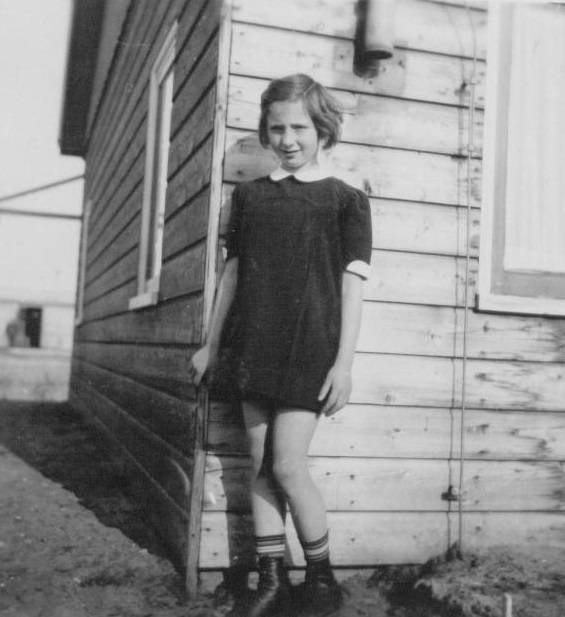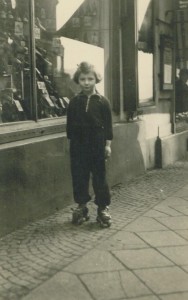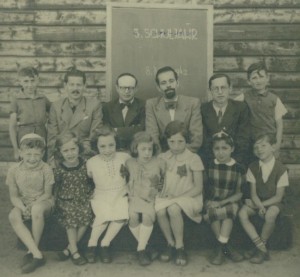
Betti Kubaschka (1934) explains about the pain of the liberation. How her departure from camp Westerbork in July 1945 caused mixed feelings with the 11-year old, and how it still does. ‘My family are the people of Westerbork and that holds true to this day.’
The family Kubaschka
‘It’s April the 11th 1945 and the German army and guards have just left camp Westerbork – including Gemmeker, the Camp 'Kommandant'.
It is a strange feeling not to be guarded and watched anymore. There is a fear of the unknown, especially the fear that the German SS may come back. The SS took all they could manage with them, but our people know how to improvise. Some of the hidden provisions are brought out and we are managing not to be hungry.

We are with several hundred people in the camp and immediately a leadership is formed by Dutch Jews. Now it is April 12th. Camp Westerbork has just been liberated by the Canadian Army. We all must stay together in the camp. On May 5, 1945, the War is over and word spreads through the camp that those of us who want to leave, can – provided we have a place to go.
My mother Blimy (1904), father David (1902) – a shoemaker in the camp – and I and some others have no place to go. I am not Dutch, I am German by birth, my parents are Polish en we have never lived in Holland before the War. This means, Holland has no place for us.
'Happy Years'
It is difficult to say when I first realized that my five years in Westerbork were 'happy years' for me. It is even more difficult to write about it, or to understand it
The Jewish organizations come to Westerbork and try to help to resettle us. First they give us some clothing and take the overalls off our backs. Again 'lists' are made as to where to send us, who would take us in, how to feed us and clothe us, and how we can get some work to be independent. The organization finds us a room in Amsterdam and finally in the middle of July 1945 we are able to leave camp Westerbork. Strangely, not a happy day for me.
It is difficult to say when I first realized that my five years in Westerbork were 'happy years' for me. It is even more difficult to write about it, or to understand it. This is what I truly feel:
I am 11 years old and I realize I am like a 'naked baby' and a total misfit. I must learn to fit into a normal society and I have no training for that, no education to speak of, no manners, such as table manner, hygienic training, etc… . When I speak, it is a mixture of three languages, German, Dutch and Yiddish.

I know how to survive and live in a camp. But that is all I know. I am not proud of some of the things that spell 'survival'. I am a camp-rat and I am comfortable with it. I don’t know or remember that there is an 'outside' where things are different. I feel very angry, bitter and ashamed for being so different from others – perhaps even for surviving, when so many others did not. I know what I had to do in the camp, every day, every hour. Everyone who is still in Westerbork knows me, it is familiar to me, the 'Alte Lagerinsassen' (old camp inmates).
My family are the people of Westerbork and that holds true to this day.’
